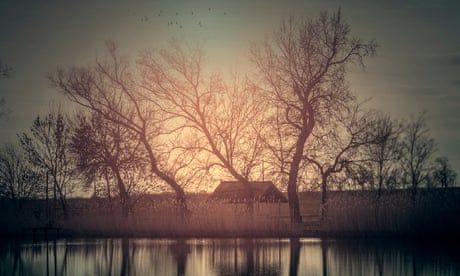
There are shades of The Shining and Shirley Jackson in these atmospheric short stories set around a haunted hotel in the Fens
From the tricksy, unstable terrain of Fen, her debut collection, through the Booker-shortlisted Everything Under, to the darkly gothic drama of her 2020 novel Sisters, Daisy Johnson’s fiction has long bumped up against the edges of horror. She has deployed the tropes and played with the imagery, but always left the reader with a way out – the option to interpret her work as magical realism, or psychological drama. The Hotel is different. In this new book of short stories, she fully, deliciously commits to the genre, via a series of brief, chilling tales of ghosts and witches, monsters and manifestations; rooms that change shape and “footsteps close behind you but no one there when you turn”.
The connective tissue is The Hotel of the title: nameless throughout, but always capitalised; looming over every sentence in which it appears. The stories take us back through The Hotel’s history: its ill-starred construction; the people who are drawn to and undone by it; the semi-sentience that roils and twitches within its walls. In Johnson’s work, landscapes have always set the tone and powered the action, and The Hotel is no exception: the flat, wet land of the Fens dampens its walls and sucks at its foundations, refusing readers firm footing. The building itself, with its “long chimneys, narrow windows … stained glass which dims the light”, has shouldered its way up from the site of a farm in which, many years earlier, a woman lived and died. We learn in the opening story that the woman was guilty of the dual sins of childlessness and second sight, which led her neighbours to drown her in the farm’s pond. Her ghost goes on to haunt The Hotel – most clearly via the eerie repetition of the phrase “I WILL SEE YOU SOON”, which she scratches on her door in the minutes before her murder, and which resurfaces throughout the collection on walls and mirrors and in notepads and emails – but she is not the source of its curse. Rather, it is the land itself that is haunted. “What is in this land is some possessive quality, some unquietness,” says the woman. “It is clear to me that there are places which have as much personality as any person or animal and this is one of them.”
Continue reading...